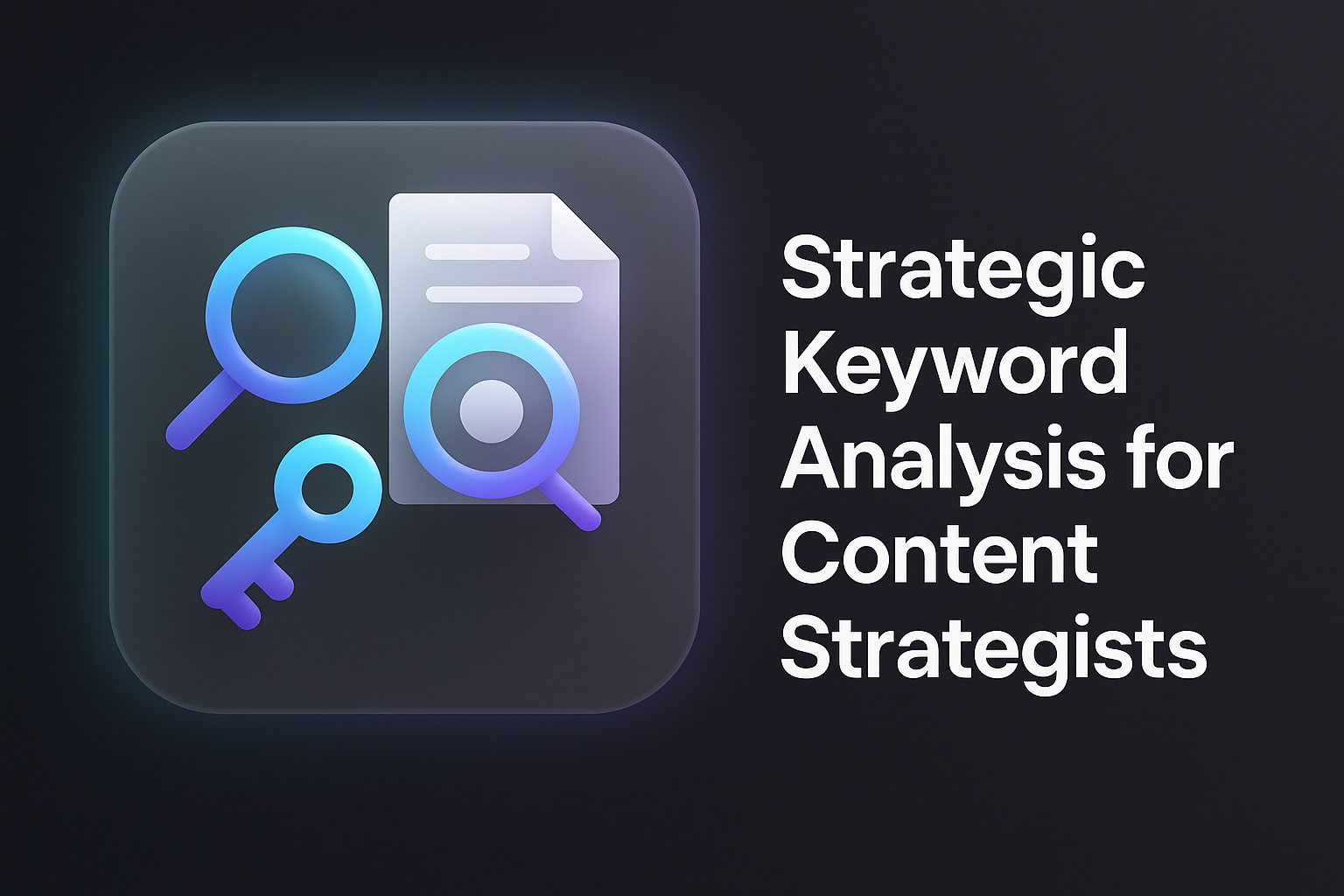Schedule a Demo
Keywords are the linchpin of any effective recruitment strategy. In the architecture industry, where the demand for content strategists is on the rise, selecting the right keywords can make all the difference. I've worked with numerous clients who've transformed their hiring outcomes by fine-tuning their keyword strategies. By targeting specific phrases, you not only reach the right audience but also attract individuals with the precise skill set needed to elevate your content marketing efforts.
When you're aiming to attract top talent in the content strategy field within architecture, certain keywords stand out. 'Content strategy for architects,' 'architectural content marketing,' and 'SEO for architecture firms' are critical phrases that resonate with professionals in this niche. These keywords not only help in identifying candidates with relevant experience but also ensure that your job postings are visible to those actively searching for opportunities in this specialized field.
It's not enough to just list keywords; they need to be seamlessly integrated into your job descriptions. For instance, instead of simply stating 'content strategist wanted,' you could say, 'We are seeking a content strategist experienced in architectural content marketing to enhance our firm's SEO strategies.' This approach not only clarifies the role but also attracts candidates who are familiar with the industry's specific demands.
Long-tail keywords, such as 'content strategist for sustainable architecture firms' or 'SEO content specialist for architectural projects,' can be particularly effective. They target a more specific audience, reducing competition and increasing the likelihood of attracting candidates with the exact expertise you need. In my experience, using long-tail keywords has led to a higher quality of applicants, as these candidates often have a deeper understanding of the niche they're applying to.
Understanding what your competitors are doing can provide valuable insights into effective keyword strategies. By analyzing the job postings of other architecture firms, you can identify which keywords they are using to attract content strategists. This doesn't mean copying their approach, but rather learning from it to refine your own strategy. For example, if a competitor is successfully attracting talent with the keyword 'architectural content strategy,' consider how you can incorporate this into your postings in a way that aligns with your brand's unique voice.
Utilizing SEO tools like Google Keyword Planner or SEMrush can significantly enhance your keyword strategy. These tools provide data on search volume, competition, and related keywords, helping you to make informed decisions. For instance, if 'content marketing for architects' has a high search volume but low competition, it could be a golden opportunity to target this phrase in your job postings and attract a larger pool of qualified candidates.
While specific keywords are crucial for targeting the right talent, it's also important to include some general terms. Phrases like 'content strategist' or 'digital marketing specialist' can broaden your reach and attract candidates who might not be actively searching for roles in the architecture industry but possess transferable skills. Balancing these with more targeted phrases ensures you don't miss out on potential talent.
Don't overlook the importance of soft skills in your keyword strategy. Terms like 'creative thinker,' 'team player,' or 'strong communicator' can attract candidates who not only have the technical skills but also the interpersonal abilities to thrive in your organization. These keywords can be particularly appealing to content strategists, as their role often involves collaborating with various teams and stakeholders.
Keyword strategies are not set-and-forget; they require ongoing monitoring and adjustment. Regularly review the performance of your job postings to see which keywords are driving the most qualified applicants. If certain phrases are not yielding results, don't hesitate to refine them. This iterative process ensures your strategy remains effective and aligned with the evolving needs of the architecture industry.
Looking at real-world examples can provide inspiration and practical insights into effective keyword strategies. For instance, a well-known architecture firm recently revamped their recruitment approach by focusing on keywords like 'content strategist for luxury architecture' and 'SEO specialist for architectural design.' This shift not only increased the number of applications but also improved the quality of candidates, leading to a successful hire who significantly enhanced their content marketing efforts.
As the architecture industry continues to evolve, so too will the keywords that attract top content strategists. Emerging trends such as 'sustainable architecture content' or 'virtual reality content for architecture' are becoming more relevant. Staying ahead of these trends and incorporating them into your keyword strategy can position your firm as a forward-thinking leader in the industry, attracting the best talent available.
Transparency is key when using keywords in job postings. Clearly stating the skills and experience you're looking for helps set the right expectations and attracts candidates who are a good fit. For example, if you're seeking a content strategist with experience in 'SEO for architecture firms,' make sure this is prominently featured in your job description. This approach not only enhances the effectiveness of your keyword strategy but also builds trust with potential applicants.
While keywords are essential, they should never overshadow your brand's unique voice. Your job postings should reflect your firm's culture and values, even as you strategically incorporate keywords. For example, if your firm prides itself on innovation, phrases like 'innovative content strategist' can resonate with candidates who value creativity and forward-thinking. This balance ensures that your recruitment efforts are not only effective but also authentic.
Crafting a winning keyword strategy for attracting content strategists in the architecture industry requires a thoughtful and data-driven approach. By understanding the role of keywords, integrating them effectively into job descriptions, and staying abreast of industry trends, you can significantly enhance your recruitment efforts. Remember, the goal is not just to attract candidates but to find the right fit for your team, someone who can truly elevate your content marketing to new heights.
